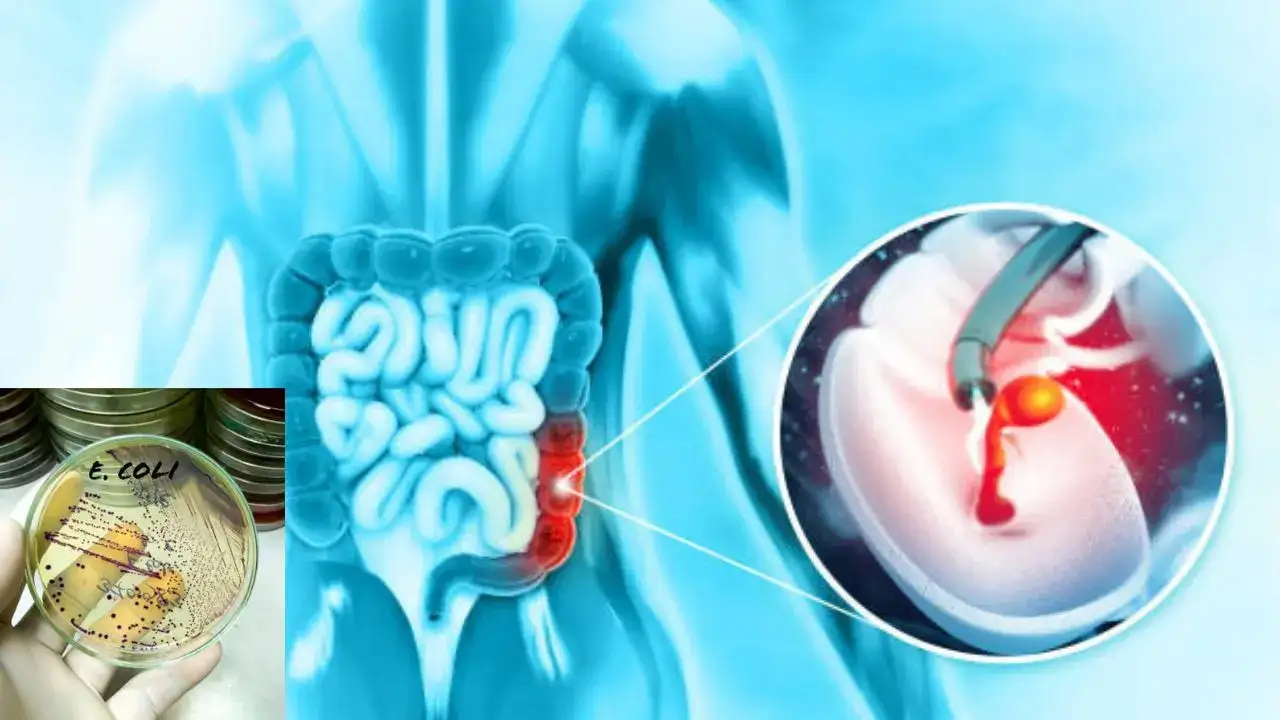Ashima Sharda Mahindra • 25 Apr 2025
THIS Common Bug Could Fuel Bowel Cancer in Youngsters; Know Ways to Reduce Your Risk

E. coli can leave behind specific patterns of DNA mutations that are 3.3 times more common in early-onset bowel cancer cases
Scientists say a dangerous toxin produced by the bacteria E. coli, which causes food poisoning, may be driving high rates of bowel cancer off late. According to experts, this finding could help explain why rates of bowel or colorectal cancer cases are rising mostly among young people across the world.
Also known as colibactin, this bacterial toxin alters your DNA, leading to life-threatening infections. Researchers, including those from the UK and backed by Cancer Research UK, found that exposure to colibactin in early childhood imprints a genetic signature on the DNA of bowel cells, which increases the risk of developing the deadly cancer when you turn 50 years old.
Bowel cancer is a type of cancer that develops in the large intestine or colon and is usually preceded by growths or polyps. While it mostly affects those aged 50 years and older, for more than a decade, the number of people aged 20 to 49 with colon cancer has increased by about 1.5 per cent each year.
E. coli’s genetic mutations cause bowel cancer cases
The latest study, led by the University of California, San Diego, and published in the journal Nature, says colibactin can leave behind specific patterns of DNA mutations that are 3.3 times more common in early-onset bowel cancer cases.
These mutation patterns were also particularly common in countries with a higher rate of early-onset bowel cancer. "These mutation patterns are a kind of historical record in the genome, and they point to early-life exposure to colibactin as a driving force behind early-onset disease," said senior author Ludmil Alexandrov, a professor at UCSD.
"When we started this project, we weren't planning to focus on early-onset colorectal cancer. Our original goal was to examine global patterns of colorectal cancer to understand why some countries have much higher rates than others. But as we dug into the data, one of the most interesting and striking findings was how frequently colibactin-related mutations appeared in the early-onset cases," said the study's first author, Marcos Diaz-Gay, a former postdoctoral researcher.
The study also found that colibactin-related mutations account for around 15 per cent of what is known as APC driver mutations - some of the earliest genetic alterations that directly promote cancer development - in bowel cancer.
Researchers are now developing early detection tests that analyse stool samples for colibactin-related mutations.
What are the red flag signs of colorectal cancer?
Common symptoms of colon cancer include:
Blood in your stool
Talk to your doctor if you notice blood in the toilet after you poop or after wiping, or if your poop looks dark or bright red. It’s important to remember blood in poop doesn’t mean you have colon cancer.
Persistent changes in your bowel habits
Talk to your doctor if you have persistent constipation or diarrhoea - or if you feel as if you still need to poop after going to the bathroom.
Stomach ache
Do not ignore it if you have belly pain with no known cause that does not go away or hurts a lot.
Bloating
Like belly pain, many things may make you feel bloated.
Unexplained weight loss
This is a noticeable drop in your body weight when you’re not trying to lose weight.
Vomiting
If you have been vomiting periodically for no known reason or if you vomit a lot in 24 hours, it may be something serious. .
Fatigue and breathlessness
These are symptoms of anemia – a sign of colon cancer.
How to reduce the risk of bowel cancer?
To reduce the risk of colon cancer, you must:
Avoid tobacco
If you smoke, quit as soon as you can.
Stop drinking alcohol
Stop drinking beverages that contain alcohol.
Maintain a healthy weight.
Exercise regularly and maintain a healthy diet by adding fruits and vegetables and cutting back on red meat, processed foods, and high-fat and high-calorie foods.
Keep track of your family medical history
Since colon cancer runs in families, tell your doctor if your biological parents, siblings, or children have had colon cancer.
Follow colon cancer screening guidelines
Ask your doctor when you should have colon cancer screening.
Get Latest News Live on Times Now along with Breaking News and Top Headlines from Health and around the world.